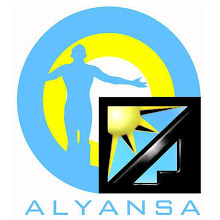As a formation, ALYANSA and its local college counterparts participate in Student Council elections as a manifestation of its commitment to student empowerment. We have always believed that a Student Council is a very important venue to lead students towards a holistic brand of leadership --- a Student Council with campaigns on issues, activities that animate involvement, and services that are relevant to students' welfare.
ALYANSA's victories are not just its own, but these are victories that belong to the students. From the many colleges that make up the University, ALYANSA's call of "Kasama Ka" resonated loud and clear. Students elected a dozen ALYANSA leaders to the University Student Council. The College of Engineering followed by electing ARISE to a rousing victory, by clinching the positions of ESC Chairperson and Vice-Chairperson. The College of Architecture selected Blueprint to lead the next Architecture Student Council. Of course, the College of Social Sciences and Philosophy handed BUKLOD CSSP its eighteenth straight year of leadership. In other colleges, from Science, Business Administration, Law and Economics, among many others, ALYANSA stalwarts clinched numerous positions in their respective local councils.
Nonetheless, we believe that winning elections is only the first step towards change. ALYANSA is committed to show that its call "Kasama Ka", and the promise of inclusion, becomes a reality. We are committed to work hard, work across party lines, work amidst difficulties, in order to deserve the mandate UP students have given the formation.

